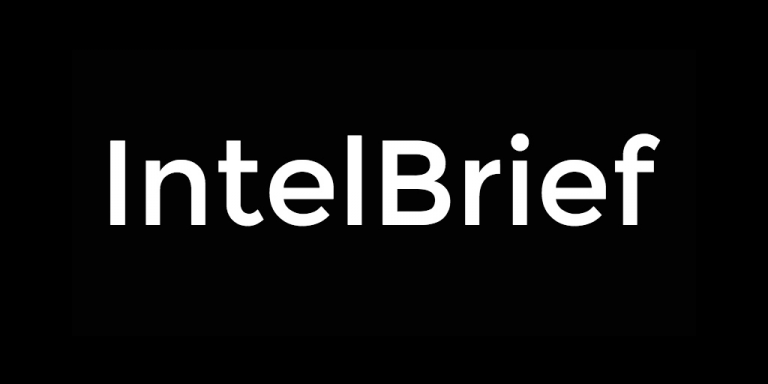INTELBRIEF
September 20, 2017
TSC IntelBrief: North Korea and the Iran Nuclear Accord

• North Korea is unlikely to curb its nuclear program in response to President Trump’s September 19 speech threatening to “totally destroy” the country if the United States or its allies are attacked.
• The landmark 2015 multilateral agreement constraining Iran’s nuclear program—which President Trump called “an embarrassment”—is not easily applied to North Korea.
• North Korea does not face the same degree of strategic, political, and economic pressure that caused Iran to agree to curtail its development of nuclear weapons.
• North Korea’s key regional adversaries, South Korea and Japan, are restricted by domestic politics and constitutional provisions from countering North Korea by developing their own nuclear weapons.
In July 2015, Iran and six international powers led by the United States finalized a comprehensive agreement restricting Tehran’s nuclear program. From the moment the agreement was signed, North Korean leader Kim Jong-Un categorically rejected entering a similar accord, quashing the international community’s hopes of imposing limits on Pyongyang’s far more advanced nuclear program. By 2015, North Korea had already conducted several nuclear weapons tests, culminating in what’s believed to have been a successful hydrogen bomb test in early September. Iran, by contrast, had not produced weapons-grade fissile material or completed a design for a nuclear detonator when it agreed to curtail its nuclear ambitions—though few questioned that Tehran could eventually achieve these goals.
To North Korea, nuclear weapons ensure the survival of the Kim regime and bolster the legitimacy of the state. Bargaining that capability away in a multilateral accord would expose the country as a poor, repressive, and illegitimate subordinate to the more vibrant South Korea. More critically, the fact that North Korea fought a war with the United States that has never officially ended, has led it to perceive that Washington seeks its eventual demise. President Trump’s speech Tuesday before the United Nations General Assembly, threatening to “totally destroy” North Korea if it attacks the United States or its allies, likely reinforced Kim Jong-Un’s suspicions of U.S. intentions and his dedication to continuing his nuclear advances. In contrast, Iran’s leadership was able to accept a nuclear deal because it did not have a compelling strategic rationale for nuclear weapons. The 1979 revolution firmly established the Islamic regime’s legitimacy as liberating Iran from foreign influence. Meanwhile, decades of U.S.–Iran tensions and proxy wars have yet to escalate into a major direct conflict with Washington.
The regional context of North Korea’s nuclear program also differs substantially from that of Iran. North Korea has a big-power ally in China; a veto-wielding U.N. Security Council member that acts to prevent a North Korean economic and political collapse by limiting international sanctions on Pyongyang. Kim Jong-Un also likely also calculates that North Korea’s nuclear program will fail to provoke its main adversaries, South Korea and Japan, into a regional nuclear arms race. Both nations are largely precluded from developing nuclear weapons—Japan by constitutional limitations and South Korea by domestic political considerations. Both are also deterred from acquiring nuclear weapons by China’s strident opposition to any broader nuclear arms race in northeast Asia.
Iran has no big power protector and was faced with a unified international community willing to impose crippling economic sanctions to compel Tehran to accept the accord. As a major oil exporter, Iran needs access to the global banking system, making it far more vulnerable to sanctions than the economically puny and isolated North Korea. Iranian leaders also understood that they are already well behind in a potential regional arms race. Israel, widely known to possess nuclear weapons, has said it would take all measures necessary to prevent the existential threat of a nuclear-armed Iran, while Saudi Arabia has threatened to acquire its own nuclear capability if Iran did so first. For Iran, unlike North Korea, a nuclear weapon would not guarantee security, allowing Iranian leaders to trade that potential capability in return for lifting economic sanctions.
Based on these considerations, it is clear the 2015 Iran nuclear agreement is not transferrable to North Korea, regardless of heightened international pressure including President Trump’s speech. The strategic imperative and regional calculus for North Korea to refuse such a deal remains. Prospects that Pyongyang might consider such a deal would become even more remote if the Trump Administration were to cease implementing the Iran accord despite Tehran’s compliance with its terms. That possibility appeared to increase after President Trump termed the deal an “embarrassment” to the United States, adding, “I don’t think you’ve heard the last of it, believe me.”
.
For tailored research and analysis, please contact: info@thesoufancenter.org
.
.